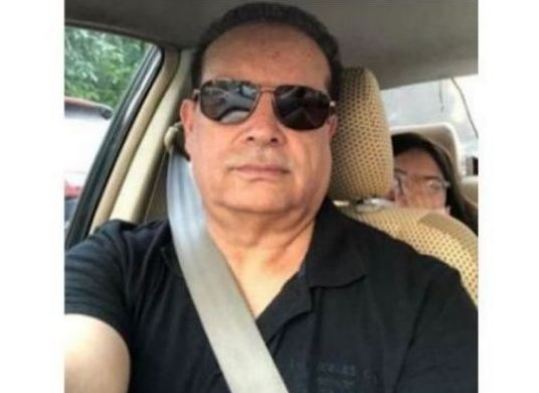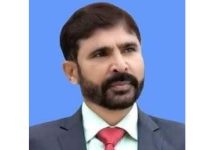By Qamar Bashir
On August 5, 2019, the Indian government repealed Article 370, which prohibited the Indian Parliament from applying certain laws to Jammu and Kashmir without the state’s consent, as well as Article 35A, which empowered the Jammu and Kashmir state legislature to define and grant special rights and privileges to “permanent residents” of the state. This illegal, unethical, and unconstitutional decision precipitated a massive political and security crisis in Indian Illegally Occupied Jammu and Kashmir (IIOJ&K), resulting in a five-year-long brutal military siege in which communications were cut off, restrictions on freedom of movement were imposed, and people were denied easy access to food, medicine, and other critical supplies.
The use of extreme tactics such as arbitrary detentions, torture, and extrajudicial killings has degraded Kashmiris’ fundamental rights. Businesses have been shut down, schools have been closed, and healthcare facilities have been disrupted. People are unable to communicate with their families and friends, and the occupying forces have recently begun using disturbing and inhuman tactics that have never been used in many other conflict zones, such as refusing to return the bodies of martyred civilians to their families, denying them funerals, and denying their families the ability to fulfill their religious obligations.
The deployment of over one million heavily armed troops over a civilian population of only 12 million which is even far less than the population of Karachi has turned IIOJ&K into the most militarized Zone of the world having no parallel in the current world history.
This equates to one soldier for every ten civilian Kashmiris. There is only one comparable case of Palestine, which has been under Israeli blockade since 1967, but it is likewise dwarfed when compared to IIOJ&K. On a combined population of 5 million, Israel has stationed roughly 60,000 troops in the West Bank and 15,000 in the Gaza Strip, resulting in one soldier for every 83 civilians, compared to one soldier for every ten civilians in IIOJ&K. This high level of militarization wreaked havoc on the lives of the people who reside there. The forces are frequently viewed as an occupying force, and their presence has resulted in extensive human rights violations including as arbitrary detentions, torture, and extrajudicial killings, in addition to wreaking havoc on the economy and infrastructure.
According to numerous credible reports, India’s draconian illegal rule over a UN-mandated disputed region has killed 96,225 innocent civilian Kashmiris, tortured 7,297 Kashmiris, imprisoned 168,202 civilians without recourse to justice, and destroyed 110,500 homes and businesses. An estimated 100,000 widows confront severe difficulties in providing for themselves and their families. In Indian-controlled Kashmir, an estimated 50,000 half-widows married to men who have disappeared or been arrested and are subjected to sexual violence and harassment. The violence has impacted an estimated 2 million children in Indian-controlled Kashmir. Many of these children have lost one or both of their parents, and they may have also been subjected to violence, displacement, and trauma. 20,000 women had been raped, gang raped, or molested, according to the International People’s Tribunal on Kashmir (IPTK).
These casualties greatly outnumber those in Palestine, where as of December 2022, 21,104 Palestinians had been dead, including 12,191 civilians, including 3,125 children.
These casualties are also significantly bigger than the casualties of the Afghan war, in which at least 47,368 Afghan civilians, including 16,440 children, were killed as of January 2022, according to the Watson Institute of International and Public Affairs at Brown University.
Many reports and research have documented human rights breaches in IIOJ&K: “Kashmir: A Year of Darkness” (2020) was released by Human Rights Watch. Amnesty International released a report titled “India: Kashmir: Clampdown on Dissent and Media Freedom” in 2021. The International Commission of Jurists produced a study paper titled “Kashmir: The Impact of the Armed Forces (Jammu and Kashmir) Special Powers Act, 1990″ (2018), and the United Nations High Commissioner for Human Rights published a report on the human rights situation in Kashmir” (2018). The Asian Centre for Human Rights published “Kashmir: The Human Cost of Conflict” in 2017. These papers and studies detail a wide range of human rights breaches in IIOJ&K, including arbitrary detentions under the Armed Forces (Jammu and Kashmir) Special Powers Act (AFSPA), in which thousands of people have been jailed without charge or trial. There have been numerous reports of torture and ill-treatment by Indian security forces, as well as hundreds of extrajudicial deaths. Indian security forces have used sexual violence against women and girls. The Indian government has restricted freedom of expression in Kashmir, including a prohibition on public gatherings and the use of social media.
The International Crisis Group’s (ICG) Conflict Tracker ranks the Kashmir conflict as “High” based on a number of indicators such as the number of people murdered, the number of people displaced, the level of violence, and the level of instability.
The Kashmir dispute is ranked 143rd out of 163 countries in the Global Peace Index (GPI), an annual index that analyses the level of peace in countries throughout the world.
The Armed Conflict Location & Event Data Project (ACLED), a research project that collects data on political violence around the world, ranks the Kashmir conflict as High Intensity.
The Indian government has put a number of limitations on freedom of movement in Kashmir, including a curfew and a ban on travel between regions. For reporting on sensitive themes, journalists have been arrested, detained, and harassed. The government has banned the coverage of public gatherings and their reporting on social media. Journalists have been arrested and incarcerated for reporting on sensitive themes under the Armed Forces (Jammu and Kashmir) Special Powers Act (AFSPA). Police and security forces have harassed journalists for reporting on sensitive topics and visiting particular areas of Kashmir or meeting with certain persons. In 2019, the government restricted access to Facebook, Twitter, and other social media platforms. Journalists have found it difficult to report on the situation in Kashmir as a result of these restrictions and have made it difficult for Kashmiris to obtain reliable information about what is going on in their own land.
The rise of violence against the civilian Kashmiri people, particularly after August 5, 2019, has been widely condemned. The US Department of State found the Indian government to have arrested hundreds of Kashmiris without charge or trial, and to have subjected them to torture, including beatings, electric shocks, and sexual assault, in its annual Country Reports on Human Rights Practises released on March 8, 2023. According to the report, Indian security forces have killed dozens of Kashmiris without due process, have limited freedom of expression in Kashmir, notably by prohibiting public meetings and restricting the media, and have restricted freedom of movement by imposing curfews and checkpoints.
The UN has consistently urged a halt to human rights violations in Kashmir. Michelle Bachelet, the UN High Commissioner for Human Rights, stated in 2019 that the situation in Kashmir is “deeply concerning” and that there is a “serious risk of further violations.” The European Union has also demanded that human rights atrocities in Kashmir be stopped. The EU’s High Representative for Foreign Affairs, Josep Borrell, stated in 2020 that the situation in Kashmir was “of great concern” and that the EU was “monitoring the situation closely.” The US has also raised alarm about human rights abuses in Kashmir. The US State Department stated in 2021 that it was “deeply concerned” about “ongoing restrictions on freedom of movement, communications, and assembly” in Kashmir. China has also criticised India’s violations of human rights in Kashmir. In 2021, the Chinese Foreign Ministry stated that India’s “activities in Kashmir are a severe violation of human rights” and that they “endanger regional peace and stability.”
Undaunted by international condemnation and rebukes, the BJP government views the Kashmir crisis primarily through a security lens, ignoring the situation’s political and humanitarian aspects in order to deploy more troops across the region while wearing the blinkers of its Hindu nationalist ideology.
After nearly five years of siege, it is apparent that the BJP government’s iron-fist policy is failing. While New Delhi appears unwilling to stray from its current course, the government would benefit greatly from acknowledging the political roots of the Kashmir crisis and approaching it as a multidimensional problem, rather than framing it as a security crisis fueled by Pakistan that must be solved with greater and greater use of force.
All nations committed to peace, particularly the United States and the European Union, have a critical role to play. They should encourage the Indian government to re-engage with Kashmir’s political leaders, emphasizing that the government’s unrelenting onslaught on Kashmiri civil society is only fueling dissatisfaction and increasing the risk of militancy. They should make it clear that success on distinct matters, such as returning the corpses of deceased fighters to their families, may boost India’s foreign image and soothe public resentment. They should also address the problem of harassment and abuse of journalists and human rights activists in bilateral talks on a regular basis.
The entire Muslim world should unite and boycott Indian products and services, downgrade their diplomatic ties and put in abeyance all trade and investment agreements until India reverses its illegal action of 5th August, 2019.
India, instead of changing the demographics of the region, should address the issue through a series of public consultations, and to lend credibility to this process, it should roll back its constitutional coup of August 5th and restore articles 35A and 370 to their original positions, repeal all draconian laws specific to Kashmir, stop crackdown on political activity, allow free expression and peaceful dissent, and release Kashmiri politicians.
Then it should into a meaningful dialogue with Pakistan to decide the modus of operandi to hold free fair and transparent plebiscite under the auspices of United Nation to give inalienable right to the Kashmir to decide their fate in accordance and aspiration of Kashmir people. If the Modi’s hindutva inspired Kashmir strangulation continues unabated it would only fuel resentment of the IIOJ&K, motivating even more youth to join the militants’ ranks.
The only way to find a long-term solution in Kashmir is to implement several UN Security Council (UNSC) resolutions calling for a peaceful end to the conflict and a plebiscite to determine the region’s future, or else Kashmiris will have to wait for another Mohammad Bin Qasim to rescue them from Raja Dahar’s iron fist.
By Qamar Bashir
Former Press Secretary to the President | Former Press Minister to the Embassy of Pakistan to France | Former MD, SRBC

















